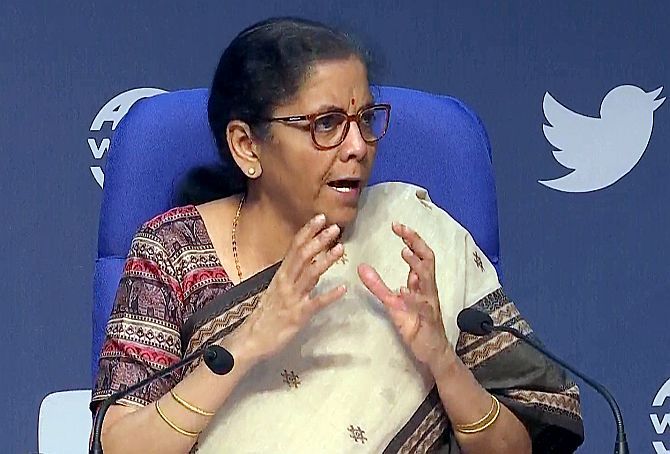Announcing the fourth tranche of the economic stimulus package that largely dealt with reforms and almost negligible new investment, Finance Minister Nirmala Sitharaman announced allowing the private sector in commercial mining as well as auction of even partially explored coal blocks.

In bold reforms aimed at boosting sagging economy, the government on Saturday announced an easing of limits on foreign direct investment in defence manufacturing, privatisation of six more airports, opening up of more air space and allowing private sector in commercial coal mining.
Announcing the fourth tranche of the economic stimulus package that largely dealt with reforms and almost negligible new investment, Finance Minister Nirmala Sitharaman announced allowing the private sector in commercial mining as well as auction of even partially explored coal blocks.
Also, turning coal into liquid or gaseous fuel will be incentivised while rights to exploit of gas lying below coal bed (CBM) in blocks owned by state-owned Coal India Ltd (CIL) will be auctioned.
Production earlier-than-scheduled will be incentivized through rebate in revenue share.
An investment of Rs 50,000 crore is envisaged in coal evacuation infrastructure to help meet CIL's target of 1 billion tonnes of production by 2023-24.
Sitharaman announced structural reforms in the mining of minerals through the introduction of a seamless composite exploration-cum-mining-cum-production regime under which 500 mining blocks would be auctioned.
Also, a joint auction of bauxite and coal mineral blocks would be done to enhance the aluminium industry's competitiveness by reducing the cost of electricity generation.
The government will also remove the distinction between captive and non-captive mines to allow the transfer of mining leases and the sale of surplus unused minerals, leading to better efficiency in mining and production.
For the electricity sector, the finance minister said a tariff policy laying out consumer rights such as inefficiencies of distribution companies not burdening consumers and penalising load-shedding is on the anvil.
The policy would also promote the progressive reduction in cross-subsidies, a time-bound grant of open access, timely payment to generating companies and DBT for subsidy.
Also, electricity distribution in union territories will be privatised, she said.
For boosting private sector investment in social infrastructure, a Rs 8,100 crore revamped Viability Gap Funding Scheme will be launched by raising the share of government funds in such projects to 30 per cent from the current 20 per cent.
Earlier this week, Prime Minister Narendra Modi announced a cumulative package of Rs 20 lakh crore, nearly 10 per cent of the GDP, to provide relief to an economy battered by the coronavirus lockdown imposed since March 25.
While this included March 27 announcement of Rs 1.7 lakh crore package of free foodgrains and cash to poor for three months and RBI's Rs 5.6 lakh crore worth of monetary policy since March, the government in three tranches over the last three days announced a cumulative package of Rs 10.73 lakh crore.
The government cash outgo is limited to a maximum of Rs 18,500 crore on free foodgrain and affordable housing to migrant workers as well as limited tax relief.
Photograph: ANI Photo










